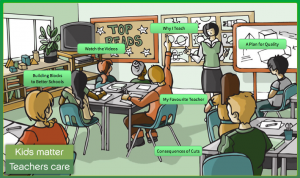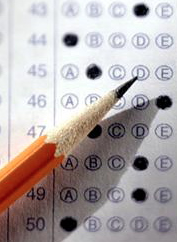An Open Letter Concerning CUPE 2278 and Job Action
A strike is a good thing and especially a good thing for the University of British Columbia at this moment in time. The very courageous CUPE 2278 labour action, full strike pending, is a wake up call, a breath of fresh air, or a catalytic measure for an apathetic campus, faculty and student bodies inclusive. Yes, there are individuals taking chances and stances on issues online and off, but a collective movement has materialized at UBC. Yes, those of us fortunate enough to be members of unions or the Faculty Association accept that a collective agreement is better than an individual agreement.
We invite students, faculty, staff, and administrators to do all they can to make CUPE 2278’s—the Teaching Assistants’– strike meaningful, effective, and successful and help the GTAs inject the campus with the spark and power of activism.
What to do as a student, faculty member, or administrator in the face of a strike? The question for staff tends to be redundant as union members in sympathy will rarely, if ever, have to or want to cross picket lines.
First, a matter of policy. UBC’s Strike Policy and Guidelines note that the “University respects the right of students, staff or faculty members as a matter of conscience, to refuse to cross a picket line in a labour dispute.” Once a student communicates a decision to side with the striking workers (usually by the first or second day of the strike), accommodations have to be made or will be made once the job action resolves. Missed assignments will be given an extension and have to be completed. Students can gain access to a “senior faculty member to serve as an academic arbiter for students who have sought to resolve their concerns with their Faculties but feel that they have been treated unfairly.” Yes, faculty members, GTAs or undergraduate student employees, and staff may surrender salary for the duration of time taken as a matter of conscience, but it is a small price to pay for activism, dignity, and solidarity.
Strikes are not left vs. right politics, as eventually most want nothing more than fair treatment and find or would give a lot for the security and protection of unions. Reciprocity and shared benefit may be expected in the future when your union is mobilizing for job action. Just as the CUPE 2278 strike is a good thing for UBC at this point, honoring or participating in this strike is a good thing. Individual dignity is bound to collective power.
Undergraduate students, keep in mind that inasmuch as you can organize a protest, and some of you have, you can also strike in sympathy with your graduate student peers. You can strike regardless of whether CUPE 2278 strikes. The BC Labour Code establishes limitations to the rights of workers or unions such as CUPE 2278, but is does not govern student strikes. As an example, the Quebec student strike lasted seven months, the longest student strike in Quebec history. For an excellent guide to student strikes, see the FAQ from the Students’ Society of McGill University http://ssmu.mcgill.ca/blog/2012/03/student-strike-faq/. It is a fair question to ask, in this case, ‘why don’t faculty members strike?’ Many faculty members at UBC wish we could but our Collective Agreement with the University has a “Prohibition of Strikes and Lockouts” clause. We will support strikes in sympathy nevertheless.
Second, a matter of pragmatics. From a labour activist standpoint, ‘do everything in your conscience and power to support the job action.’ Neither desire nor expect business-as-usual, as a disruption of this business is the intent of most job action, boycotts, etc. If you have to, plan ahead and retrieve necessities from your office or locker prior to the strike, as crossing a picket line is an aggressive response to the striking workers. If you find yourself behind picket lines, move to reposition yourself on the other side of the pickets. If your building of campus is picketed, do not try to sneak in a rear entrance to rationalize that you did not actually “cross” a picket line to get there. Being asked to cover and doing the work of those on strike is an anti-labour or anti-union response that invalidates the purpose of the job action and ultimately makes for a heated, toxic workplace, or in this case university. Be present and invest in strength in numbers. If you’re an administrator, especially without a real “management” designation, well, use your conscience and please don’t direct minutiae from the top down to intimidate the students and faculty. Call in sick if you don’t want to join your students and faculty on the picket line.
What do we have in common and when should we act collectively? For the most part, day in, day out, the only group demonstrating their political capital or clout at UBC is management, and in many ways what a conservative, corporate-driven, regressive politics this turns out to be! Management has its aggressive side and we can readily draw the connections between this and a learned apathy of faculty and students. As 180,000 students took to strikes, protests, and occupations of campuses and streets between February and August in Quebec, it is an affirmation of activism for a student movement to materialize here at UBC and what we used to call the ‘left coast.’ A strike is economically a good thing as well, as it sends a message to the University and government that “net zero workers” and bad faith approaches to collective bargaining are not working. A net zero mandate removes the ability of unions to actually bargain and legitimizes an employer’s option to shirk accountability at the bargaining table. The reasonableness of a CUPE 2278 strike is undeniable, as it would help workers across the province— everyone gains. So, the graduate teaching assistants’ union decision to hold a strike vote and mobilize for action is precisely the injection of student power into activism and bargaining that this campus needs. And let’s not forget the courage of CUPE 2278 in its valiant effort to bring a sense of fairness to the University and government in the full strike of 2003. Again, this is a declaration of full support.
Thank you,
Stephen Petrina & E. Wayne Ross, co-Directors of the Institute for Critical Studies in Education (ICES), co-Editors of Workplace: A Journal for Academic Labor, and blogging at Workplace.

 Follow
Follow

